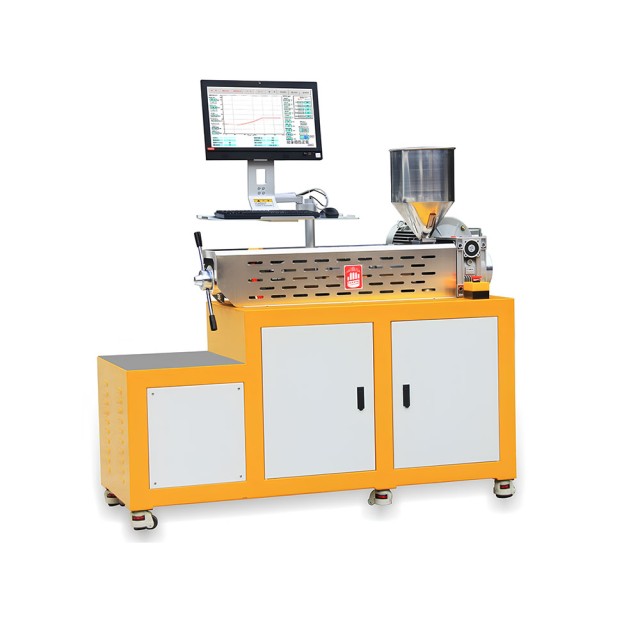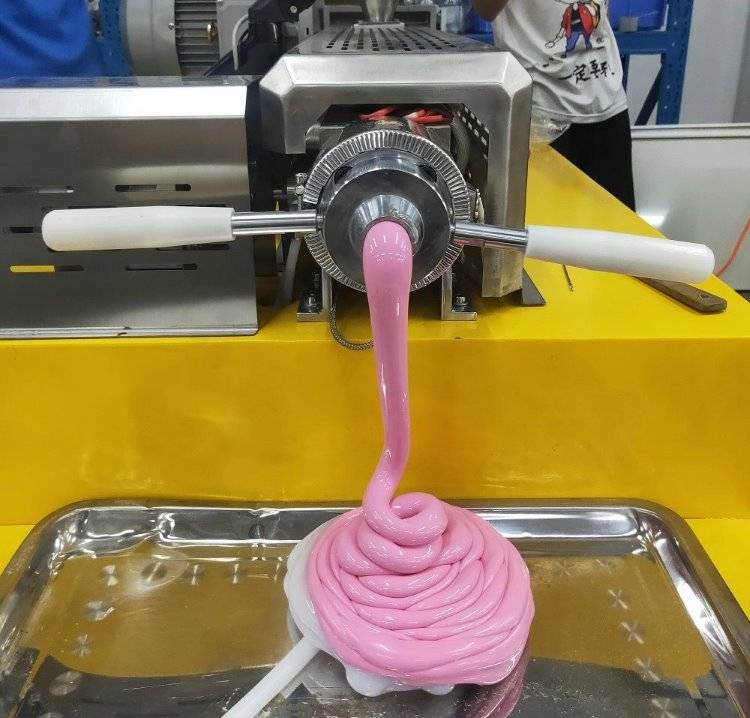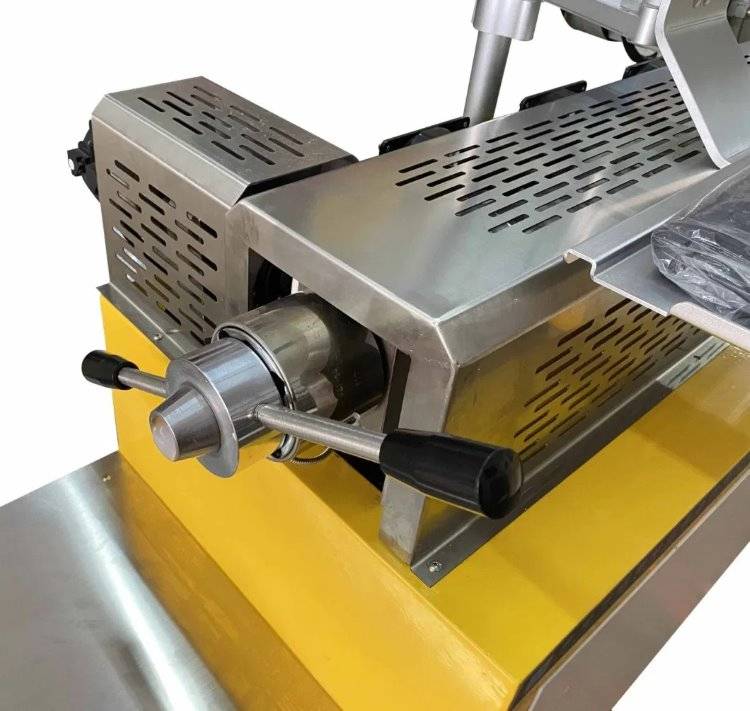
Rubber processing machine
Filter Testing Machine FPV for Dispersion Properties of Polymers and Pigments
Item Number : RPM-06
Price varies based on specs and customizations
- Control system
- Computer Control
- Screw diameter
- 20、25、30mm (or customized)
- Main motor power
- 4KW (or customized)
- length to diameter ratio (L/D)
- 28:1
Shipping:
Contact us to get shipping details Enjoy On-time Dispatch Guarantee.
Why Choose Us
Easy ordering process, quality products, and dedicated support for your business success.
Introduction
The filter testing machine (FPV) is suitable for testing the dispersion properties of polymers such as pigments, additives and masterbatches by extrusion and filtration.
Detail & Parts




Application
The filter testing machine (FPV) is first melted and homogenized by a single-screw extruder, and then transported to the mold through a melt pump through a filter. The instrument measures in real time, records the melt pressure change curve before filtration, and automatically analyzes and calculates the filtration pressure value to characterize the dispersion properties of the masterbatch or other filling materials. The test results are automatically output, the interface is intuitive, and the data is accurate.
Features
- It uses a computer human-machine interface control method to perform work status control, data acquisition, calculation processing, data export, data storage and other projects;
- Designed in accordance with the European EN13900-5:2005 test standard;
- The test result data can be exported as a PDF document and can be connected to a printer to print experimental data reports;
Technical specifications
| Model No. | RPM-06A | RPM-06B |
|---|---|---|
| Control system | Computer Control | |
| Screw diameter | 20、25、30mm (or customized) | |
| Main motor power | 4KW (or customized) | |
| length to diameter ratio (L/D) | 28:1 | |
| Rpm Screw speed | 0-95rpm Frequency conversion speed regulation | |
| Pressure sensor | 0-35Mpa | |
| Filter | According to EN13900-5:2005 standard | According to ASTM standard |
| Outside dimension mm(W*D*H) | 1553*650*1350mm | 1553*650*1350mm |
| Weight (kg) | About 350kg | About300kg |
| Power Supply | 3∮,AC380V | |
Trusted by Industry Leaders

FAQ
What Is A Filter Testing Machine And How Does It Work?
What Are The Key Components Of A Filter Testing Machine?
Why Is Filter Testing Important For Pigments And Additives?
What Parameters Can Be Adjusted During Filter Testing?
How Is The Performance Of Pigments And Additives Evaluated Using A Filter Testing Machine?
What Are The Benefits Of Using A Filter Testing Machine In The Development And Quality Control Of Polymer Products?
4.7 / 5
Incredible precision and efficiency, a game-changer for our lab!
4.8 / 5
Top-notch quality and durability, worth every penny.
4.9 / 5
Fast delivery and excellent customer service, highly recommend.
4.7 / 5
State-of-the-art technology, simplifies our testing process.
4.8 / 5
Outstanding value for money, very satisfied with the purchase.
4.9 / 5
User-friendly interface, makes data analysis a breeze.
4.7 / 5
Reliable and robust, handles all our testing needs.
4.8 / 5
Innovative features, keeps our lab ahead of the curve.
4.9 / 5
Exceptional build quality, long-lasting and efficient.
4.7 / 5
Quick setup and easy operation, great for our team.
4.8 / 5
Highly accurate results, invaluable for our research.
4.9 / 5
Superb support and maintenance, a worry-free investment.
4.7 / 5
Streamlined workflow, saves us time and resources.
4.8 / 5
Advanced technology, enhances our testing capabilities.
4.9 / 5
Excellent value, outperforms other machines in its class.
4.7 / 5
Reliable performance, consistent and accurate results.
4.8 / 5
Impressive durability, handles high-stress testing with ease.
REQUEST A QUOTE
Our professional team will reply to you within one business day. Please feel free to contact us!
Related Articles

Molecular Distillation: A Comprehensive Overview
Explains the principles and applications of molecular distillation, a technique for separating liquid mixtures based on molecular interactions and diffusion rates.

Basic Laboratory Centrifuge Equipment
Overview of different types of centrifuges used in laboratories.

The Physics of Trust: Why Your Vacuum Furnace's Leak Rate Is Not Just a Number
A vacuum furnace's leak rate is not just a spec; it's the core indicator of process integrity, affecting quality, efficiency, and repeatability.

Your Diamond Tester Might Be Lying: Why Moissanite Fools It and How to Get Accurate Results
Is your diamond tester giving false positives? Learn why common testers fail to spot moissanite and discover the dual-test method that ensures accuracy.